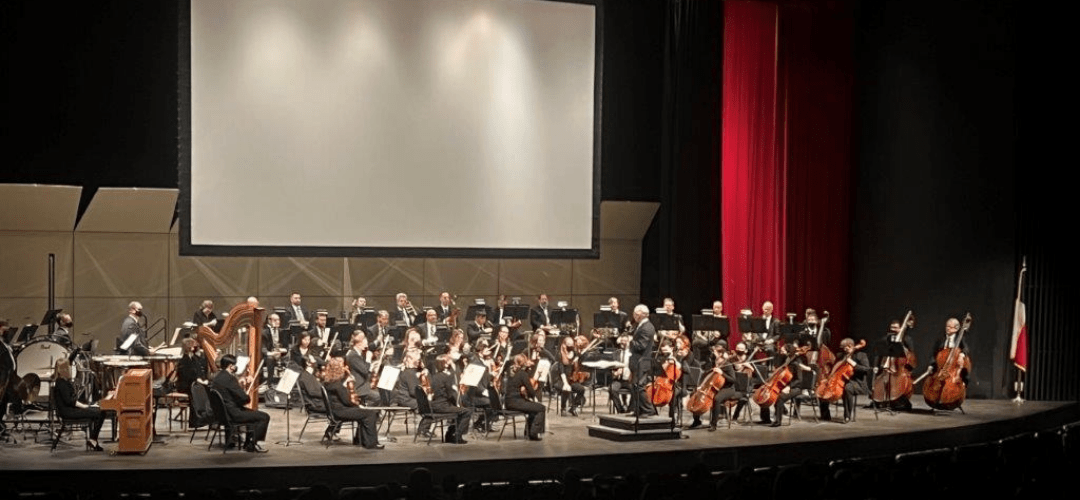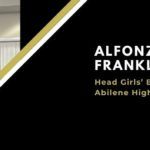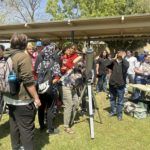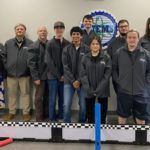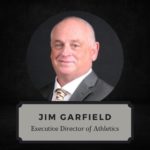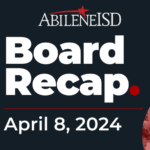Abilene ISD students who experienced the Abilene Philharmonic during one of four performances recently were transported back through time and space with the performance of English composer Gustav Holst’s work “The Planets.”
The seven-movement orchestral suite was written between 1914-17, but the age of the composition didn’t matter to the assembled third-, fourth-, and fifth-graders in attendance from schools all over the district. They couldn’t keep the smiles from their faces during and after the performance. Each movement of the suite is named after a planet of the solar system and its assigned astrological character.
A small sampling of students agreed enthusiastically that their favorite work from the show was the first number: “Mars, the Bringer of War.” Other favorites included “Venus, the Bringer of Peace,” and “Jupiter, the Bringer of Jollity.”
It didn’t take long to understand why most students enjoyed the tribute to Mars, with its dark, brooding rhythm and heavy reliance on the brass midway. The piece gives off a definite air of a work that would fit nicely into any of the Star Wars movies.
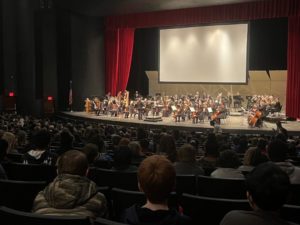 John Williams – who composed the music for all nine of the Skywalker Saga films –credits Holst’s music for being a major influence on his work for the film series, which is the second-highest-grossing film franchise in history ($10.2 billion) behind only the Marvel Cinematic University franchise ($22.6 billion). Holst’s work, in fact, influenced other movie scores like that from the Alien franchise, Star Trek IV: The Voyage Home, The Terminator, Predator or Inception.
John Williams – who composed the music for all nine of the Skywalker Saga films –credits Holst’s music for being a major influence on his work for the film series, which is the second-highest-grossing film franchise in history ($10.2 billion) behind only the Marvel Cinematic University franchise ($22.6 billion). Holst’s work, in fact, influenced other movie scores like that from the Alien franchise, Star Trek IV: The Voyage Home, The Terminator, Predator or Inception.
For Ortiz Elementary School fifth-grader Lexis Valverde, her favorites were “Jupiter” and “Venus,” “mainly because I like the sound of the harp and violin and the way both of those songs made me feel.” Valverde, who said she “loves string instruments,” plans to be part of the orchestra next year when she begins sixth grade at Mann.
Executive Director for Fine Arts Jay Lester said Valverde’s response is what the district hopes for when the district’s elementary students make their annual trip to the Convention Center for the Philharmonic performance.
“I’ve been doing this for 30 years either as a performer or administrator offering this experience to students and it’s meant to introduce them to classical music, which is found all around us: in TV, music and even video games these kids play,” Lester said. “A lot of the music these kids heard will raise the hair on your arms because it’s so moving. After hearing the music, I hope they realize so many of the great composers of today have been influenced by the composers who wrote this great music 100-200 years ago.”
For Abilene Philharmonic Music Director and Conductor David Itkin, the chance to expose young students to the music of Holst and other great composers is just one of the advantages of this performance.
“We hope they get a lot of different things, all in the same 45 minutes, which is not easy,” said Itkin, now in his 17th year with the Abilene Philharmonic and 14th year serving as Professor of Music and Director of Orchestral Studies at the University of North Texas College of Music. “We want them to enjoy being here, and while this isn’t the same as going to a movie, I want the same thing for them as I want for the adults who come to hear us perform: to leave enthused and having had a great time.
“This is a little bit different because it is an educational trip, so we do want them to leave with some musical information they didn’t have before,” Itkin said. “It’s not a classroom, but it’s an off-shoot of a classroom, and we want them to leave them more than just entertained. We want them to leave informed.”
Not only did the students leave informed, some – like those that Thomas Elementary School music teacher Abby Alford heard talking – left with a sense of awe.
“I’m not sure I can count the number of times I heard, ‘Whoa! That’s so cool! I want to play that instrument.’,” she said. “I would say their overall reaction was fascination, and they sure couldn’t wait to tell me all of their favorite things about the experience.”
Because of the nature of this year’s performance with the Philharmonic performing five of the seven pieces of Holst’s work, the students didn’t have as much of an interactive experience as some groups in the past. But even without the element limited, Itkin said having students as an in-person audience for the first time since October 2019 was an exciting change for him and his musicians.
Last year’s version of the Philharmonic was totally virtual with pre-selected questions and each of the musicians in a box on Zoom while several thousand elementary watched via computers. Itkin and his musicians spent a lot of time last year going through instruments, some music theory and other musical elements to give students more insight into the process.
“When they (students) started flowing in at about 9:30 a.m., it was like, ‘Oh! There are actually humans here. How about that?’,” Itkin said. “I was good to see the kids back in the (performance) hall again this year.”
And if they’re anything like Alford, they’ll carry those memories of being in the hall with the musicians as they figure out the direction life’s path will take them.
“When I was a fourth-grader, we studied “Jupiter,” one of the pieces performed (Friday),” she said. “I will never forget how it made me feel; all of the different sensations and emotions. That is what I hope for my students. I hope that they carry these memories with them for a long time, and I hope it encourages them to think about the possibilities waiting for them.”

